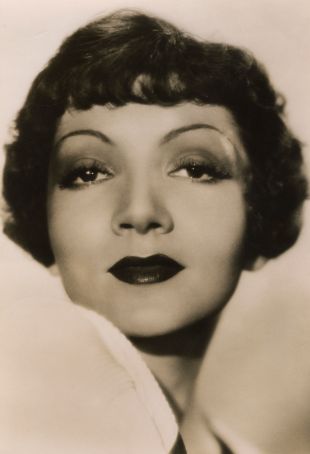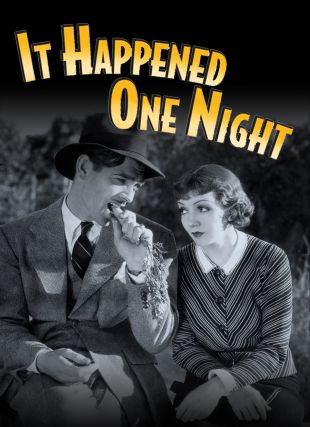Paris-born actress Claudette Colbert was brought to New York at the age of seven by her banker father. She planned an art career after high school graduation, studying at the Art Student's League. Attending a party with actress Anne Morrison, the 18-year-old was offered a three-line bit in Morrison's new play The Wild Westcotts. That ended her art aspirations, and Colbert embarked on a stage career in 1925, scoring her first big critical success in the 1926 Broadway production of The Barker, in which she played a duplicitous snake charmer. One year later, the actress made her first film at Long Island's Astoria studio, For the Love of Mike (1927), but the film was unsuccessful and she enjoyed neither the experience nor her young director, Frank Capra. So back she went to Broadway, returning to films during the talkie revolution in The Hole in the Wall (1929), which was also the movie-speaking debut of Edward G. Robinson. Once again, Colbert disliked film acting; but audiences responded to her beauty and cultured voice, so she forsook the stage for Hollywood.
Colbert's popularity (and salary) skyrocketed after she was cast as "the wickedest woman in history," Nero's unscrupulous wife Poppaea, in the Biblical epic The Sign of the Cross (1932). Colbert expanded her range as a street-smart smuggler's daughter in I Cover the Waterfront and in the pioneering screwball comedy Three-Cornered Moon (both 1933), but it was for a role she nearly refused that the actress secured her box-office stature. Virtually every other actress in Hollywood had turned down the role of spoiled heiress Ellie Andrews in Columbia's It Happened One Night (1934), and when director Frank Capra approached an unenthusiastic Colbert, she wearily agreed to appear in the film on the conditions that she be paid twice her normal salary and that the film be completed before she was scheduled to go on vacation in four weeks. Colbert considered the experience one of the worst in her life -- until the 1935 Academy Awards ceremony, in which It Happened One Night won in virtually all major categories, including a Best Actress Oscar for her.
Colbert spent the next decade alternating between comedy and drama, frequently in the company of her most popular co-star, Fred MacMurray. She gained a reputation of giving 110 percent of her energies while acting, which compensated for her occasional imperviousness and her insistence that only one side of her face be photographed (which frequently necessitated redesigning movie sets just to accommodate her phobia about her "bad side"). Colbert remained a top money-making star until her last big hit, The Egg and I (1947), after which she lost some footing, partly because of producers' unwillingness to meet her demands that (under doctor's orders) she could only film a short time each day (her doctor was her husband). She hoped to jump-start her career in the role of Margo Channing in All About Eve, but those plans were squelched when she injured her back and had to relinquish the character to Bette Davis. Traveling the usual "fading star" route, Colbert made films in Europe and a budget Western in the U.S. before returning triumphantly to Broadway, first in 1956's Janus, then in the long-running 1958 comedy Marriage Go Round. The actress also appeared on television, although reportedly had trouble adjusting to live productions. In 1961, she returned to Hollywood as Troy Donahue's mother in Parrish. It would be her last film appearance until the 1987 TV movie, The Two Mrs. Grenvilles -- in which she far outclassed her material. Still a prominent figure in the Hollywood hierarchy, Colbert retired to her lavish home in California, where she frequently entertained her old friends Ronald and Nancy Reagan. Claudette Colbert died in 1996 in Bridgetown, Barbados, at the age of 92.



